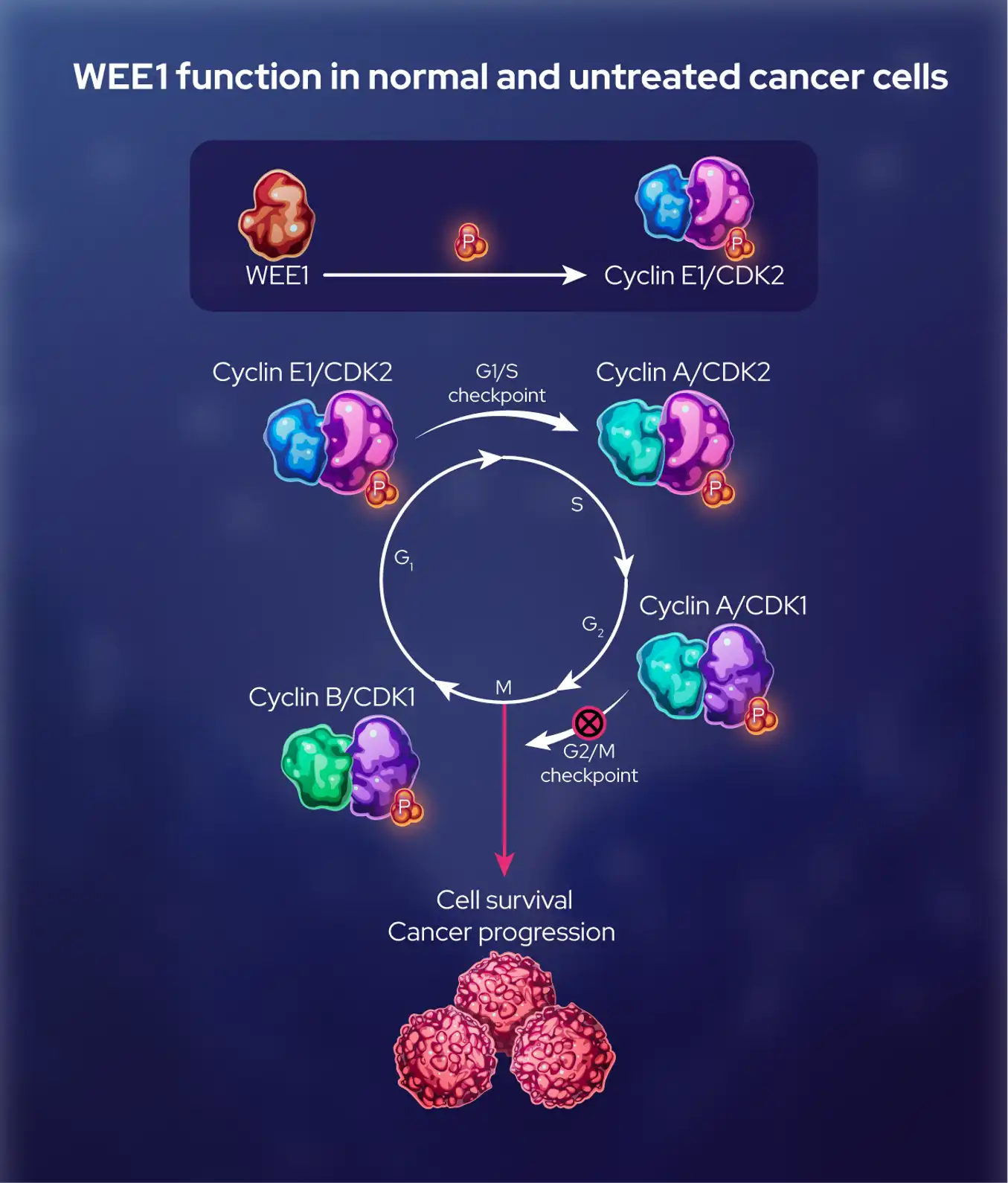Our Pipeline
Zentalis Pharmaceuticals is conducting late-stage clinical studies evaluating azenosertib.
Clinical TrialsCompound
Indication
Trial Name + Development Approach
Phase 1
Phase 2
Phase 3
Azenosertib Being Studied As Monotherapy And In Combination With Other Agents
Studies for Lead Indication
Other Study Ongoing
PROC
Monotherapy
DENALI Part 1b
PROC
Monotherapy
DENALI Part 2
Registration-intent
Cyclin E1+
Cyclin E1+
FDA Fast Track Designation
PROC
Monotherapy
Randomized Confirmatory Study
Registration-intent
Azenosertib vs. SOC chemo
Cyclin E1+
Azenosertib vs. SOC chemo
Cyclin E1+
Ovarian Cancer
Combination
ZN-c3-002
Azenosertib + multiple chemo backbones and bevacizumab
Ongoing Study
Planned Study
Product Candidates
Azenosertib WEE1 Inhibitor
Azenosertib is a potentially first-in-class and best-in-class small molecule WEE1 inhibitor in development for the treatment of ovarian cancer and other tumor types. Inhibition of WEE1, a DNA damage response kinase, drives cancer cells into mitosis without being able to repair damaged DNA, resulting in cell death. Currently, there are no FDA-approved WEE1 inhibitors, and we have designed Azenosertib to have advantages over other investigational therapies, including superior selectivity and pharmacokinetic properties.
Azenosertib is being developed in three therapeutic settings of high unmet need:
As a monotherapy
In combination with traditional chemotherapy and DNA damaging agents
In combination with molecularly targeted agents


- WEE1 is a protein kinase that inhibits the activity of both CDK1 and CDK2 kinases and is involved in the regulation of G1/S, G2/M, and M phase cell cycle checkpoints
- WEE1 plays an important role during normal cell cycle progression but also in response to DNA damage and interacts with DNA damage response (DDR) pathways
- WEE1 inhibition causes cancer cells to proceed into mitosis without being able to repair damaged DNA, resulting in prematuremitotic entry andapoptosis
- WEE1 inhibition also increases replication stress by inducing aberrant firing of replication origins and depletion of nucleotide pools




